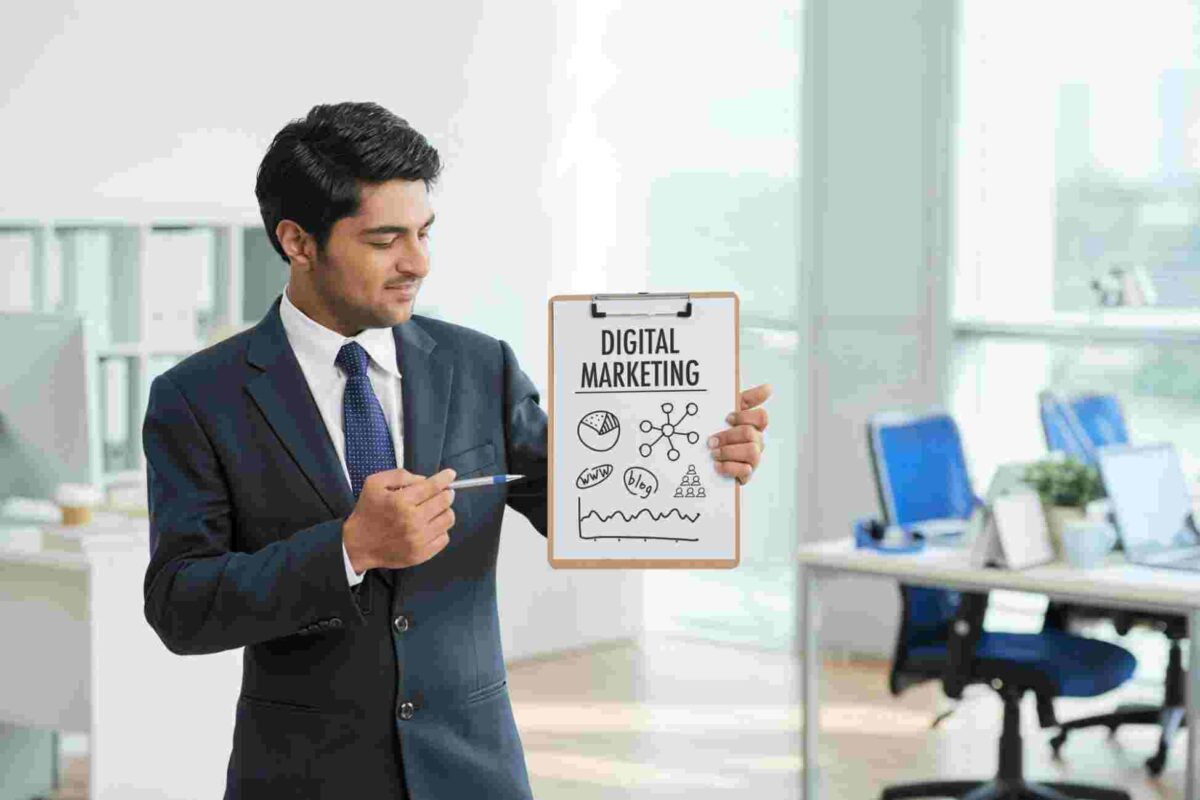Welcome to the digital age, where the power of technology and connectivity has transformed the way we live, work, and communicate. In this fast-paced world, traditional marketing methods are no longer enough to cut through the noise and capture your audience’s attention. That’s where digital marketing comes in.
Digital marketing is not just a buzzword; it’s an essential tool for businesses of all sizes to thrive in today’s highly competitive landscape. With the right strategies and techniques, you can reach a wider audience, boost brand awareness, drive more traffic to your website, generate leads, and ultimately increase sales.
In this blog post, we will explore the various types of digital marketing strategies that can propel your business forward. We’ll dive into the benefits of embracing digital marketing as part of your overall marketing plan. We’ll also provide practical tips on how to develop an effective digital strategy tailored to your specific goals and target audience.
But first things first – let’s take a closer look at what exactly digital marketing entails. From search engine optimization (SEO) to social media advertising, email campaigns to content creation – buckle up for an exciting journey into the world of digital possibilities! Get ready to unleash the power of digital marketing for unprecedented success in today’s ever-evolving marketplace. Get ready for an exciting journey into the world of digital possibilities with our best digital marketing course in Kolkata!
Types of Digital Marketing Strategies
When it comes to digital marketing strategies, the options are vast and ever-evolving. Here are some of the most effective techniques that can help you reach your target audience and achieve your business goals.
- Search Engine Optimization (SEO): This strategy focuses on optimizing your website to rank higher in search engine results pages (SERPs). By targeting relevant keywords, creating high-quality content, and building authoritative backlinks, you can increase organic traffic to your site.
- Social Media Marketing: With billions of active users worldwide, social media platforms provide an incredible opportunity to connect with your audience. Create engaging content, run targeted ads, and foster meaningful interactions with followers to build brand awareness and drive conversions.
- Content Marketing: Content is king in the digital world! By producing valuable and informative content such as blog posts, videos, infographics, or podcasts – you can position yourself as an industry expert while attracting and retaining customers.
- Email Marketing: Despite being one of the oldest forms of online marketing, email campaigns remain highly effective for nurturing leads and driving sales. Personalized newsletters or promotional emails can keep your brand top-of-mind for potential customers.
- Pay-Per-Click Advertising (PPC): With PPC advertising platforms like Google Ads or Facebook Ads Manager, you only pay when a user clicks on your ad. This targeted approach allows you to reach specific demographics instantly while controlling costs.
Remember that these strategies work best when combined strategically based on your unique business needs and target audience profile.
Benefits of Digital Marketing
Digital marketing has become an essential part of any business strategy in today’s world. It offers numerous benefits that can help businesses thrive and succeed. Here are some key advantages of digital marketing:
Increased brand awareness: With digital marketing strategies like social media advertising, search engine optimization, and content marketing, businesses can reach a wider audience and increase their brand visibility.
Targeted audience reach: Unlike traditional marketing methods, digital marketing allows businesses to target specific demographics and audiences. This targeted approach ensures that the message reaches the right people at the right time.
Cost-effective: Digital marketing is cost-effective compared to traditional forms of advertising such as TV commercials or print ads. It allows businesses to allocate their budget more efficiently by focusing on channels that provide the best return on investment.
Measurable results: One of the biggest advantages of digital marketing is its ability to track and measure results in real-time. Businesses can use analytics tools to monitor website traffic, conversion rates, customer engagement, and other important metrics to gain insights into their campaigns’ performance.
Improved customer engagement: Through social media platforms and email marketing campaigns, businesses can engage with their customers directly. This two-way communication helps build stronger relationships with customers and encourages loyalty.
Global reach: Digital marketing knows no boundaries when it comes to reaching a global audience. Businesses can expand beyond local markets and tap into international markets without significant investments.
Competitive edge: By embracing digital marketing strategies early on, businesses gain a competitive advantage over those who rely solely on traditional methods. They stay ahead by adapting quickly to changing market trends and consumer behaviors.
The benefits of digital marketing are undeniable for any business aiming for success in today’s highly connected world. From increased brand awareness to improved customer engagement, targeting specific audiences effectively while being cost-efficient – these advantages make digital marketing an essential tool for companies looking forward to staying relevant in this ever-evolving landscape.
How to Develop a Digital Marketing Plan
Developing a digital marketing plan is crucial for businesses looking to thrive in today’s competitive online landscape. Without a well-defined strategy, it can be challenging to reach your target audience effectively and achieve your business goals. Here are some key steps to consider when developing a digital marketing plan.
- Set Clear Objectives: Start by defining what you want to achieve with your digital marketing efforts. Whether it’s increasing brand visibility, driving website traffic, or boosting online sales, having clear objectives will guide your overall strategy.
- Identify Your Target Audience: Understanding who your target audience is essential for tailoring your messages and campaigns specifically to their needs and preferences. Conduct market research, analyze customer data, and create buyer personas to gain insights into their demographics, interests, and behaviors.
- Choose the Right Digital Channels: With numerous platforms available – from social media networks like Facebook and Instagram to search engines such as Google – it’s important to select the channels that align with both your target audience’s preferences and business objectives.
- Craft Compelling Content: Quality content is at the heart of any successful digital marketing campaign. Develop engaging blog posts, videos, infographics, or podcasts that resonate with your audience while showcasing expertise in your industry.
- Monitor Performance Metrics: Keep track of key performance indicators (KPIs) such as website traffic, conversion rates, social media engagement levels, and email open rates. By regularly monitoring these metrics, you can identify areas that need improvement and make data-driven decisions accordingly.
Examples of Successful Digital Campaigns
Successful digital campaigns have the power to captivate audiences, generate leads, and drive sales. Let’s explore some inspiring examples that showcase the effectiveness of digital marketing strategies.
One standout campaign was Nike’s “Dream Crazy” ad featuring Colin Kaepernick. This controversial yet impactful campaign sparked conversations on social justice and ignited brand loyalty among its target audience. By taking a bold stance, Nike demonstrated the value of aligning with a cause while staying true to their brand identity.
Another noteworthy example is Coca-Cola’s “Share a Coke” campaign. This personalized approach allowed consumers to find their names or special messages on Coke bottles and cans. By leveraging user-generated content through social media platforms, Coca-Cola successfully created an emotional connection with their customers, resulting in increased brand awareness and customer engagement.
Dove’s “Real Beauty Sketches” campaign also deserves recognition for its powerful message about self-esteem and body positivity. The video went viral as it struck a chord with viewers who resonated with the idea of embracing natural beauty rather than conforming to societal standards. This thought-provoking campaign received widespread acclaim and significantly boosted Dove’s reputation as a socially responsible brand.
Airbnb’s “Belong Anywhere” campaign effectively showcased the company’s mission of connecting people from different cultures through travel experiences. Through visually stunning advertisements across various digital channels, Airbnb conveyed its commitment to creating meaningful connections between hosts and guests worldwide.
These successful digital campaigns serve as inspiration for businesses looking to make an impact in today’s competitive landscape. By understanding their target audience, setting clear objectives, harnessing creativity, utilizing data-driven insights, and leveraging various digital marketing channels – brands can create campaigns that resonate deeply with consumers while driving business growth.
The Impact of Social Media on Digital Marketing
In today’s digital age, social media has revolutionized the way businesses connect with their audience. Platforms like Facebook, Instagram, Twitter, and LinkedIn have become powerful tools for digital marketing strategies. Here are some ways in which social media has impacted the world of digital marketing:
- Increased Reach: With billions of people using various social media platforms daily, businesses now have access to a vast audience that was previously untapped. By creating engaging content and utilizing targeted advertising options, companies can reach potential customers from all corners of the globe.
- Enhanced Engagement: Social media allows businesses to directly engage with their audience through comments, likes, shares, and direct messages. This level of interaction helps build stronger relationships between brands and customers by providing personalized experiences and addressing queries or concerns promptly.
- Influencer Marketing: Social media influencers have gained immense popularity over the years due to their ability to sway consumer purchasing decisions. Brands now collaborate with these influencers to promote their products or services effectively. Leveraging influencer partnerships can significantly boost brand awareness and credibility among target audiences.
- Real-Time Feedback: Through social media channels, businesses receive instant feedback on their products or services from customers across the globe. This invaluable data helps them refine their offerings based on customer preferences and demands swiftly.
- Cost-Effective Advertising: Traditional forms of advertising often require significant investments without guaranteeing desired results; however, social media advertising offers cost-effective options tailored to specific budgets while providing detailed targeting capabilities for maximum ROI.
- Enhanced Analytics & Insights: The use of analytics tools within social media platforms enables businesses to track key performance indicators (KPIs) such as post engagement rates, website click-through rates (CTRs), conversion rates, and more.
This valuable data provides insights into campaign effectiveness, facilitating informed decision-making for future strategies.
As technology continues to advance at an unprecedented pace, social media’s impact on digital marketing will only grow stronger. Businesses that adapt, embrace, and leverage social.
Table of Contents











